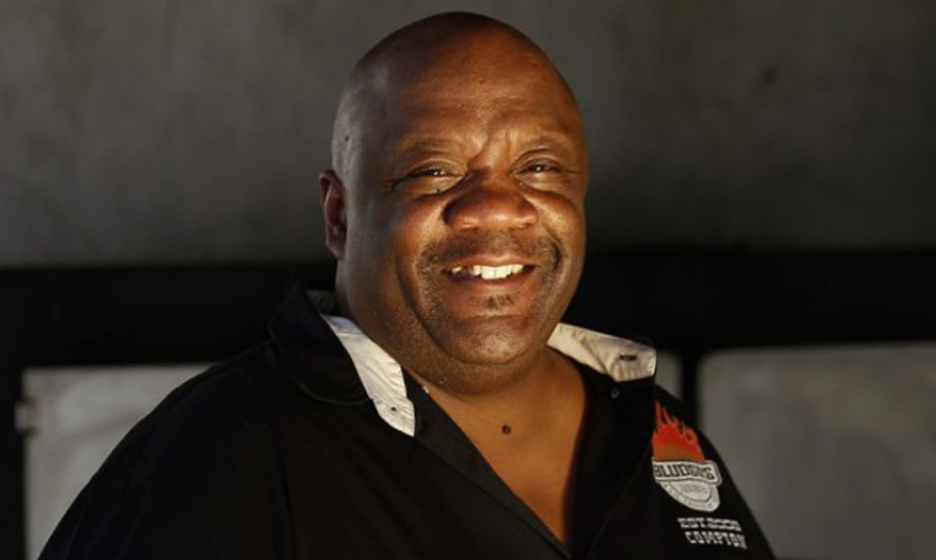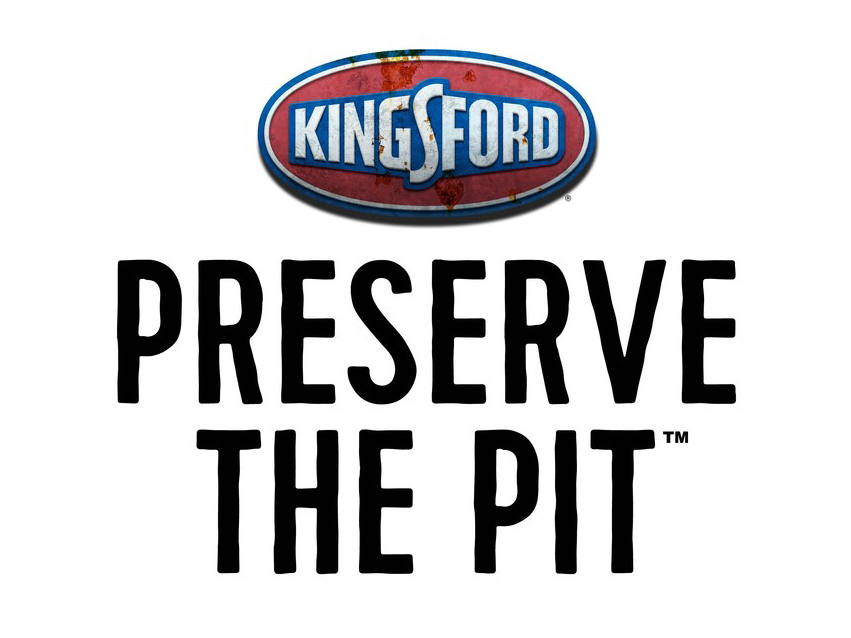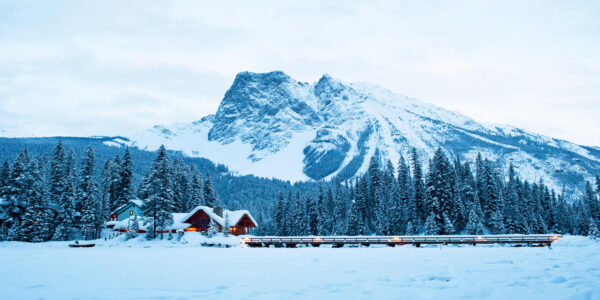
Kevin Bludso on Kingsford’s Preserve the Pit Fellowship and Barbecue’s Origins
Kingsford is doing its part to ensure the future of barbecue remembers its origins.

Kingsford
In the year 2021, we will revel as the first cookbook is published by a Black pitmaster, Rodney Scott. The first since Ten Speed Press published a book on barbecuing by Black Panther Party co-founder Bobby Seale in 1988 entitled Barbeque’n with Bobby—though he was no pitmaster.
By the year 2022, we will have two cookbooks published by Black pitmasters as Kevin Bludso by then will have put out a book including his family’s story, recipes, techniques, and barbecue tips. Kevin, the founder of Bludso’s Bar & Cue in Los Angeles and a Compton native, has teamed up with Kingsford as they open the application process for a new initiative called the Preserve the Pit Fellowship, which will give a group of aspiring barbecue professionals an exclusive opportunity for immersive training and one-on-one mentorship with dedicated industry leaders. They will also receive capital investment to kick-start their business, help from a network of advisors, immersive industry training, and the opportunity to create lasting relationships with some amazing mentors.

Kingsford
Through the fellowship, Kingsford is seeking to fill a void where they see an apparent one within barbecue culture. The program not only seeks to acknowledge how the Black community ignited American barbecue over 350 years ago as a way to make the most out of the little they were given, it also is here to give an opportunity to those trying to preserve Black history through barbecue. By putting the focus on Black barbecue and pitmasters, Kingsford is looking to put the power back in the hands of the people who made it powerful in the first place by accepting applications for the fellowship nationwide from anyone over the age of eighteen. Applications are open from now until March 1st, and fellows will be chosen on April 1st.
While barbecue is refocusing on its origins, flavors, and future, we talked to Kevin Bludso about what the Preserve the Pit Fellowship means to him, his upcoming book, and the history of barbecue. Check out the full interview and more information on the fellowship below.
Sunset: You started barbecuing in Texas with your aunt—do you know who taught her how? How far back does the lineage go?
Kevin Bludso: My family was the go-to people for BBQ as sharecroppers and she always said she knew how to cook a brisket when she was six years old. I’m sure in the days before they were free they were BBQing on the plantation.
Sunset: Do you and your family still cook together?
Kevin Bludso: Of course not this year but we still get down. Down here sometimes my aunt and I get together. They all think I’m the go-to barbecue guy and I’m not! I’m sure when this is all over we’ll get down and I’m just going to sit back and eat.
Sunset: Where does the influence for your barbecue style come from?
Kevin Bludso: Just good, tender, good flavor, good smoke style comes from delicious flavor and good smokers. Good sides, potato salad, everything has to be good. I still love a chopped beef sandwich with a strawberry soda. When I see a youngster and their stuff is on point I love that. It’s not my job to speak on what someone else should be doing, everyone has their opinion on barbecue and I always say just make good barbecue.
Sunset: Where do you think Black History is being lost in the future of barbecue?
Kevin Bludso: It’s like everything else in history. How can you talk about the history of barbecue in America and not talk about the African American in the history of barbecue? Who do you think was making barbecue on the plantation and all that? I always say the real ones know, and the ones who don’t want to know know, but you can’t put the people who simply don’t know into that category. It’s up to me and the people in this program to tell the story. That’s why I admire Kingsford for what they’re doing because they have a huge platform and are keeping everything a hundred and telling the stories. I always go back to when my oldest was in his senior year of high school and he came home and was upset and asked me what year I was born and I said ’65 and he said the voters act was in ’65. It hit him then that when I was born, black people couldn’t vote, and that brought it home to him. My granny knew slaves, so they can tell you the real story. I’m still here to tell the real story. I got a hundred years of it to give to you.
Sunset: What does the Preserve the Pit Fellowship mean to you?
Kevin Bludso: It’s huge to me, if somebody didn’t teach me then I wouldn’t be where I am today. A lot of times you don’t get this opportunity. One person can’t do it; there are so many companies that just give money to the community and that’s it. This program is giving money and hours of time. There are over a thousand years of barbecue experience coming together and it means everything in the world; you always want to see your people represented in a positive way. This is putting so many more professionals out there and we need that. The pleasure is all mine to be a part of this and to give back, I can’t wait until we can be hands-on and teach them new things.
Sunset: What excites you about barbecuing? After doing it for so long, what do you still look forward to?
Kevin Bludso: Just the smell of it and trying someone else’s barbecue, I love going to people’s restaurants and other peoples houses when they’re cooking. I have friends come over and they want me to make barbecue but I want to make gumbo! I know what my barbecue tastes like, so I want to try other people’s and go into places with history and try their barbecue for the first time. When I’m in L.A. I want to stop by Woody’s barbecue even though I have Bludso’s out there, I know what mine will taste like.
Sunset: I loved watching The American Barbecue Showdown. Did mentoring the contestants on the show encourage you to continue uplifting other pitmasters?
Kevin Bludso: The one thing about The American Barbecue Showdown is a lot of those guys could cook right off the bat. A lot of people who think they can cook, you can’t tell them anything, but we made the challenges so there were a lot of things we were able to help them with. You have to want to teach and I am a firm believer in [the idea that] what I’ve learned isn’t for me to keep to myself. Why hold information to yourself; who needs it the most? We need it the most, there are young people who want to go into this business but don’t know how and they can be a G in this business if we grab them up now and help them out. That’s what I like about the Kingsford program, that they’re bringing it back into the neighborhood.
Sunset: I heard you’re working on a book of recipes. Do you think passing down your recipes and traditions is a part of preserving the history of barbecue?
Kevin Bludso: The first African Americans to publish barbecue cookbooks will be in the next two years: Rodney Scott is first this year, then mine. It’s going to be my biography, where I’m from. The trials and tribulations my family had to go through, the son of a young black L.A. police officer and my mother, who was a Black Panther sympathizer so it was a lot going. I’ve been offered certain opportunities and there are certain things I won’t do on television; I’ll always be myself and keep it one hundred. Taking jobs that require you to be inauthentic takes everyone a step backwards. Sunday dinner in a Black person’s house is legendary, and that story hasn’t even been told the way it should yet, there’s so much more to be shared and we’re just starting.
Sunset: Will the book include tips for beginners (like me) who admire barbecue but are sheepish to try it themselves at home?
Kevin Bludso: The first thing I tell anyone about barbecuing is learning how to control your oven. There are parts of the book that will show a lady in her New York City apartment how to go out on her Weber and make something good. It’s not even just barbecue, it’s showing people how to make gravy from scratch and how easy it is, even oxtails and things, anything that takes a while to cook is easy if you just leave it alone; it speaks on that and brings it down to a level anyone can do.
Applications for the Preserve the Pit Fellowship can be found here, and are open until March 1st. Fellows will be announced April 1st. Stay tuned with us on social @SunsetMag to follow along the @Kingsford journey.
